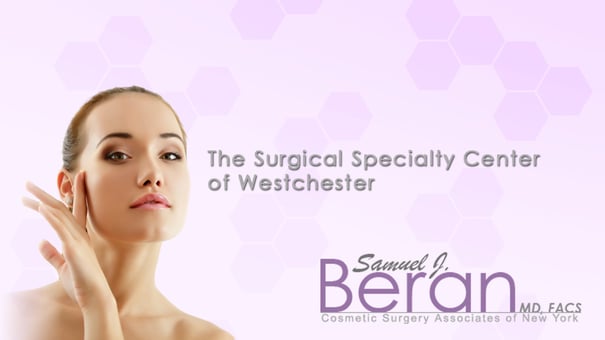
Did you know that breast augmentation surgery is the most popular cosmetic surgery procedure, according to the latest statistics (2020) from the American Society of Plastic Surgeons (ASPS)? It’s true. Every year, almost 300,000 women undergo breast augmentation in the US, choosing implants filled with silicone gel, saline (salt water) or the newer structured implants filled with saline. (Read my blog on this subject.)
However as is often the way, once something becomes popular, myths and falsehoods seem to crop up around it. This has also been the case with breast implants. To dispel certain non-truths and inaccurate facts about this plastic surgery procedure, I offer here my thoughts concerning five myths discussed on the ASPS website. In addition to breast augmentation, I offer a complete range of breast procedures which you can learn about here.
5 false assumptions about breast implants
- All breast implants need to be replaced after 10 years
While it is true that breast implants are prosthetic devices that are not expected to last forever, and yes there are certain complications associated with breast implants, it is false that all breast implants need to be replaced. The most common reasons implants may need replacing include rupture or leakage, and capsular contracture.
Leakage: If saline implants leak, the saline is reabsorbed by the body, whereas if silicone gel implants leak, the leaked silicone gel will need to be surgically removed.
Capsular contracture is an abnormal scar formation around the implant that usually causes pain and hardening in the breast. Implant patients may develop capsular contracture in either or both breasts at any point following implantation, and rupture or leakage may likewise occur at any time after surgery.
The longer it has been since the implants were inserted, the higher the chance that there may be a leak or rupture. This does not mean, however, that implants should be removed or replaced after 10 years if there are no problems.
HOW TO TELL IF YOUR IMPLANTS ARE LEAKING
Leakage from a saline breast implant: With saline implants, a leak is easily identified because you will notice the breast deflating and becoming smaller in size. This is not painful or harmful because the saline is just absorbed by the body. Although not critical to your health, replacement is recommended as soon as possible.
Leakage from a silicone breast implant: A rupture or leak is harder to tell with silicone implants because the silicone gel tends to stay within the implant capsule and the volume or size of the implant is maintained. I recommend removing the implant and any loose silicone that may be present, then replacing the implant.
Routine follow-up is essential for detecting any issues with breast implants and determining appropriate therapeutic intervention. Annual follow-ups should include breast exams, mammograms, sonograms, and possibly MRI, depending on the patient's age and risk factors for breast disease.
- Breast implants cause autoimmune diseases
Over the years there have been reports of patients who claim to have developed any number of health problems and diseases as a result of their breast implants. Scientific studies of hundreds of thousands of women with implants have refuted an association between implants and systemic or autoimmune diseases, says the ASPS.
In addition, there is no increased risk of breast cancer in patients with breast implants. It is also important to add that all implants currently available in the US, including silicone gel, saline and structured saline implants, are all FDA cleared. Older implants in the 1960s did not undergo the extensive testing and data collection that current implants have been subjected to in order to determine their safety and effectiveness. Recently, a rare type of lymphoma called Breast Implant-Associated Anaplastic Large Cell Lymphoma (BIA-ALCL) has been identified in association with implants, and should be treated with surgical removal of the implant and surrounding capsule. Read my blog about this here.
- Implants are dangerous during breastfeeding
No, this is false. Many women who undergo breast augmentation are in their 20s and 30s, and understandably may be concerned about potential risks for a future baby if they become pregnant. Studies have shown that there is no medical risk for babies who are born to or breastfed by women with saline or silicone breast implants, according to the ASPS.
There are no inherent risks in breast augmentation that would make implant surgery a hindrance to future pregnancy. Because the surgery involves incision and dissection of breast tissue, there is a small risk that nipple sensation may decrease, but plastic surgeons can use certain techniques to minimize this risk.
- Women can choose whatever bra cup size they want
With the hundreds of types and sizes of breast implants currently on the market, there is a huge range of possible results from breast augmentation. The exact cup size that may result from surgery, however, is not completely a fixed, predictable outcome. For the most natural results, the implant should match the patient's own breast dimensions and body structure, in terms of breast width, diameter and position on the chest wall. Placing a very large implant under a small, narrow breast will most likely result in an implant whose edges may be visible at the top or sides of the breast.
Another consideration is the weight of too-large breasts on a small frame. If the implants are too large for your body, you might experience significant shoulder and back pain.
- Any cosmetic surgeon can perform breast augmentation surgery
Absolutely not. Breast augmentation surgery can provide many emotional benefits as well as physical ones, improving patients' self-confidence and boosting their self-esteem, sometimes for the first time, which is something I have seen in many of my patients.
However, when choosing their plastic surgeon, patients should be aware that "cosmetic" surgeons are not the same as plastic" surgeons. Only board certified plastic surgeons have completed years of rigorous training and passed written and oral examinations in order to become certified by the American Board of Plastic Surgery (ABPS).
I myself am board certified by the American Board of Plastic Surgery (ABPS), am a member of the American Society of Plastic Surgeons (ASPS) and the American Society for Aesthetic Plastic Surgery (ASAPS), and am a Fellow of the American College of Surgeons (FACS). The designation "cosmetic surgeon" does not indicate the level of extensive training inherent in an ABPS certified plastic surgeon.
Breast augmentation surgery is major surgery and involves meticulous preparation and comprehensive patient evaluation on the part of the plastic surgeon. This includes:
- A detailed pre-operative assessment of each patient's anatomy, including breast size and shape, breast symmetry or asymmetry, characteristics of breast tissue, nipple-areola and skin, and degree of breast sag to determine if an additional breast lift procedure is indicated
- Understanding each patient's unique wishes and desires for their post-operative results, and explaining any limitations of possible outcomes
- Knowledge of and familiarity with all different types of breast implants to best advise patients: silicone gel, cohesive silicone gel "gummy bear," round and anatomical "tear drop" shaped implants
- Experience with and ability to use any number of different surgical techniques to produce desired results
- Close follow-up of patients post-surgery to address any issues that may arise
Breast implants are overall a very positive experience
As with any plastic surgery procedure, breast augmentation does not guarantee any specific results, but most patients who undergo breast enhancement are extremely satisfied with their outcome, with a relatively small percentage needing revision or removal of their implants. That’s why I feel that separating fact from fiction is essential for patient education prior to their surgery so that they have realistic expectations and are happy with their results.
I perform breast implant surgery at the Surgical Specialty Center of Westchester
For almost every plastic surgery procedure I perform, including breast implants, I use the Surgical Specialty Center of Westchester. Located in Harrison, NY, the Surgical Specialty Center has four operating rooms and an 11-bed recovery room. Each operating room is fully equipped with state-of-the-art anesthesia (provided by a board-certified anesthesiologist), emergency equipment and everything else I and my surgical team need to provide the highest standard of care to each one of our patients. To learn more, watch this short video by clicking here on the image below.
Insurance coverage
Insurance companies consider breast augmentation surgery (no matter the type of breast implant) to be elective cosmetic surgery and therefore is usually not covered by insurance, meaning that patients pay the entire cost themselves.
If you have breast implants, you should get them checked regularly
If you have breast implants—saline, silicone, gummy or textured—it’s important to get them checked for ruptures, slippage, leakage, swelling or any other potential problems. For all my patients with implants, I highly recommend getting them examined once a year. Please make an appointment to come in and see me so I can check for any problems.
Symptoms of potential implant problems
If you are experiencing any of the following symptoms, contact me right away:
- pain
- lumps
- swelling
- breast asymmetry
However, if there are no symptoms, there is no reason to remove the implants.
See the beautiful results for yourself
To see unretouched “before and after” photos of actual patients of mine who have had successful breast implant surgery, please visit the Breast Augmentation page in the Photo Gallery section of my website.
Considering breast implants?
If you are thinking about breast augmentation and would like to schedule a free consultation, please contact me and I will send you additional information prior to your appointment. During our consultation, I will assess the current appearance of your breasts, your reasons for wanting surgery, and your expectations. Then together, we will decide which breast procedure will bring you the results you’re looking for. I specialize in the most advanced techniques of breast augmentation surgery and am ready to help you achieve your goals.
For more information about breast implants, read these 3 blogs
So that you can be fully informed about this important decision, I’ve written several blogs explaining the many aspects of breast implant surgery:
- Learn About The Different Types of Breast Implants In This Short Video
- 8 Questions To Ask Your Plastic Surgeon Before Breast Augmentation
- It’s About More Than Looking Sexier: 5 Important Reasons Women Have Breast Implants
For more information on the many types of breast procedures I offer, please visit these pages on my website
You can find a good deal of information on my website about the many breast procedures available to you:
- Breast Procedures
- Breast Augmentation
- Breast Lift
- Breast Reconstruction
- Breast Reduction
- Breast Revision
Board certified by the American Board of Plastic Surgery (ABPS), a member of the American Society of Plastic Surgeons (ASPS) and the American Society for Aesthetic Plastic Surgery (ASAPS), and a Fellow of the American College of Surgeons (FACS), Samuel J. Beran, MD is a highly accomplished plastic surgeon with offices in Manhattan, Harrison and Mount Kisco, NY. With more than 20 years’ experience and a thorough command of the most advanced techniques and technologies, Dr. Beran consistently provides his patients with the highest level of plastic, cosmetic and reconstructive surgery of the breast, face, skin and body. Recently, Dr. Beran was named a “Top Doctor” by RealSelf for his dedication to responding to consumer questions and patient feedback. The “Top Doctor” designation is awarded to less than 10% of the RealSelf physician community.









